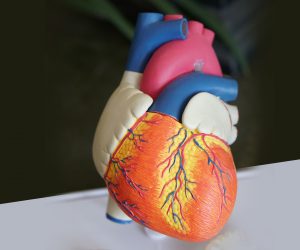
This Dietary Habit Has Monumental Impact on Your Sleep Quality
Sara Middleton via NaturalHealth365 – Should you be eating before bed? If you’ve never stopped to consider when you should close up the kitchen for the night, now might be a good time to re-evaluate your evening dietary habits.
The reason? It turns out that eating food too close to bedtime has a tremendously negative impact on your sleep quality and may even increase your risk of sleep-disrupting issues like acid reflux.
Eating Too Close to Bedtime Destroys Your Sleep Quality in Multiple Ways
A small 2005 study published in The American Journal of Gastroenterology found that eating within 3 hours of bedtime significantly increased the risk of gastroesophageal reflux disease (GERD). This association remained even after the researchers controlled for factors like body mass index and drinking and smoking habits.
From a purely anatomical viewpoint, it makes sense that eating too close to bedtime can lead to acid reflux. Laying down horizontally allows the stomach contents to leak upwards toward the esophageal sphincter. Close-to-bedtime eating may also lead to acid reflux because the human digestive system normally slows down at night – by as much as 50%, according to the AARP – which therefore may disrupt the way food gets broken down in the stomach.
In addition to increasing the risk of acid reflux, here a few other reasons why eating too close to bedtime can be detrimental to sleep quality:
- Consuming calories close to bedtime can stimulate wakefulness in the brain.
- When you eat food, insulin is released by the pancreas. This hormone – which normally helps control blood sugar levels – can also influence the sleep/wake cycle. One 2015 paper from Nutrients notes that consuming a large meal close to bed may even contribute to insulin resistance, a major driver of weight gain and diabetes.
- Eating and drinking too close to bed can cause fragmented sleep because it can force you to get up in the night to urinate.
So, When SHOULD You Eat Before Bed? Here Are Some Helpful Guidelines to Keep in Mind
As we know, poor sleep quality has been linked to a wide number of health issues including obesity, type 2 diabetes, cancer, and cardiovascular disease. So, it’s worth cleaning up your evening dietary habits. But when’s a good timeframe for your last meal?
Generally speaking, most experts recommend not eating within 2 to 3 hours of bedtime. In other words, if you go to bed at 10 p.m., your last meal shouldn’t be any later than 7 or 8 p.m. Are real hunger pangs keeping you awake? A small, easily digestible snack like a piece of fruit should be okay to eat – just be sure to avoid overdoing it.
Of course, it’s not just when you eat but what you eat that can impact your sleep quality. According to resources like the AARP, certain foods that might disrupt sleep include:
- Dark chocolate and anything else containing caffeine
- Sugary sweetened beverages
- Alcohol
- Sweets and refined carbs
On the other hand, the National Sleep Foundation notes that kiwi fruit, fatty fish, turkey, eggs, nuts, rice, tart cherry juice, and tart cherries have all been shown in studies to promote better sleep. Researchers are still learning why, but overall it’s thought that these nutrient-rich and antioxidant-rich foods support hormonal and neurochemical processes in the brain that positively influence the sleep/wake cycle. So, eat these delicious foods up! (Just not within 2 to 3 hours of bedtime.)
By the way:
It probably makes sense by now that the food we eat can affect sleep quality. But don’t forget – the reverse appears true, too. According to the Sleep Foundation, studies reveal that people who are sleep deprived tend to reach for less healthy food options, including simple carbs and fatty foods. It’s thought that sleep deprivation and insomnia negatively alter a person’s metabolism and hunger signaling.
The bottom line:
The relationship between sleep and your diet is an important one to optimize for your health – and it’s a relationship that goes both ways. If you’re feeling run down or are dealing with any sort of chronic health condition, be sure to take a hard look at both lifestyle factors to determine if and where you can make some simple improvements.
Sources for this article include:
NIH.gov
NIH.gov
NIH.gov
SleepAdvisor.org
SleepFoundation.org
Verywellhealth.com
AARP.org
Diabetes.co.uk
To read the original article click here.
For more articles from NaturalHealth365 click here.






